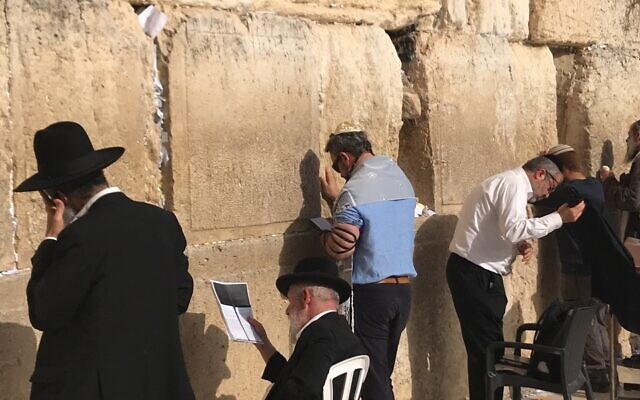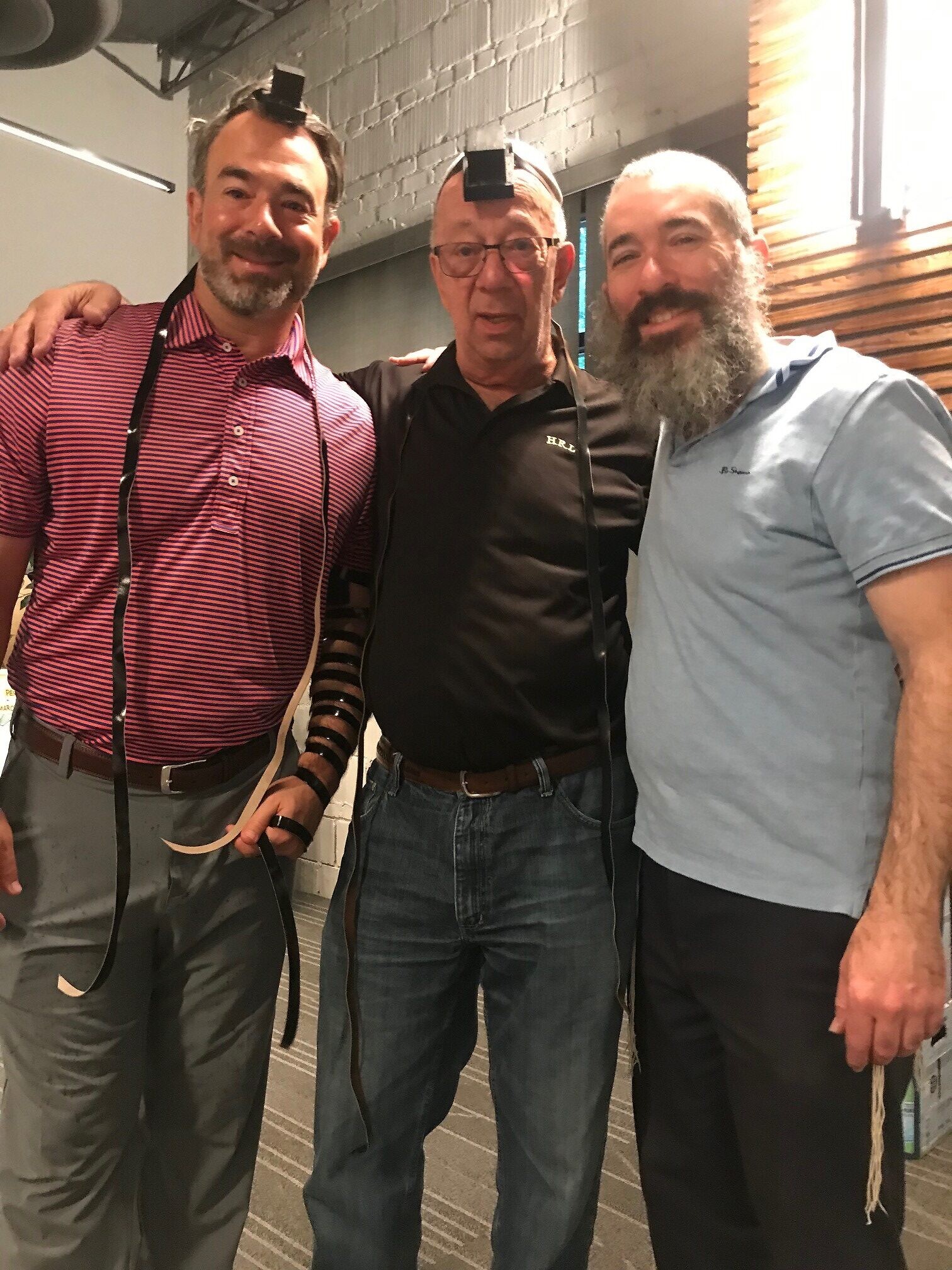A ‘Powerful Moment’ with Dying Father
Had he sought help from someone else that day at the Kotel, Brent Herd might not have made a connection that changed his life.
Dave Schechter is a veteran journalist whose career includes writing and producing reports from Israel and elsewhere in the Middle East.

This is the story of how an Atlanta man’s chance encounter in Jerusalem came full circle at his dying father’s bedside.
On his first trip to Israel three years ago, Brent Herd concluded his business in Tel Aviv, then caught a ride to Jerusalem. The next day, a Thursday, Herd walked from his hotel to the Kotel (the Western Wall), where he approached one of the rabbis who assist people at the holy site.
The rabbi asked, where are you from? When Herd said, “Atlanta,” the rabbi exclaimed, “Go Braves!”
Then the rabbi asked, “Do you know Eliyahu Schusterman?”
“I do not,” Herd answered
“You should,” he was told.
At the Wall, Herd used the camera in his phone to pray with his father and grandmother in Charlotte, N.C., where he grew up.
Herd returned to the rabbi and said, “I am flying out late Friday night but I have nowhere to go for Shabbat. Can you help?”
“Find me after prayers tomorrow,” the rabbi replied.
On Friday, the rabbi told Herd, “You will be a guest at my in-laws’, in the Jewish quarter of the Old City.”
As it happened, Herd had approached Rabbi Shmuel “Shmuly” Weiss, a Chabad rabbi at the Kotel. “He knows everyone!” Rabbi Eliyahu Schusterman, co-founder of Chabad Intown, told the AJT. “He is a friend of my brother’s, as well.”
Weiss subsequently wrote an email introducing Herd and Schusterman to each other.
On his return from Israel, Herd met Schusterman and began to study and daven at Intown Chabad, even though the Herd family are members of The Temple in Atlanta.

“I had sort of been going through an awakening over the past five years, around Judaism, spirituality, mysticism. I’ve always sort of been that way and in Israel it came roaring back,” Herd said. “Being around that deep level of Judaism for me was extraordinary. It felt like I was home, like I was coming back home to myself,” Herd said.
Three years after that trip to Israel, Herd was at his dying father’s bedside in Charlotte. Because of COVID-19 concerns, a rabbi would not come to the house. The cantor from Temple Israel, a Conservative congregation in Charlotte, called, as did its former rabbi.
Herd then called Schusterman and asked if he would pray with his father. Through the camera in his phone, Schusterman prayed for Richard Herd, including the viduy (translated from Hebrew as “confession”) a prayer often recited at the end of life.
“My mom was laying next to him and I was sitting next to him and it was just a beautiful moment because we were just surrounding him with Judaism and love and prayers and really helping him move on,” Brent Herd said. Though Richard Herd was unable to join in, Brent believes his father understood, as the family recited prayers along with Schusterman.
Richard Louis Herd, age 76, passed away the next day, March 30, in the presence of his wife and children.
As Brent Herd drove to Charlotte nearly a month later to visit his mother, he told the AJT, “My father was a bigger-than-life guy who was a large presence at Temple Israel. His life revolved around the temple and he was deeply connected to the clergy, to many, many, many members. He opened the temple every Thursday for minyan. He would sit with bodies when they passed.”
Brent Herd treasures a photo of himself, his father and Schusterman as they prepared to daven at Chabad Intown.
Schusterman called the experience of using the camera in his phone to recite those prayers for Herd’s dying father “unnerving, emotional, sobering.”
The rabbi said, “It was a very powerful moment for me to be doing this. It’s always a difficult thing to do. It was very difficult in its uniqueness. Ideally, the person is still conscious, and they can say the prayer with you and appreciate what they’re saying. It’s a very difficult thing for a rabbi to do.
“The idea of doing the viduy in the best of circumstances is uncomfortable, but once you get past the initial discomfort, once you’ve said the words to the family or to the individual, you shift into the mode of pastoring to those in need,” Schusterman said.



comments